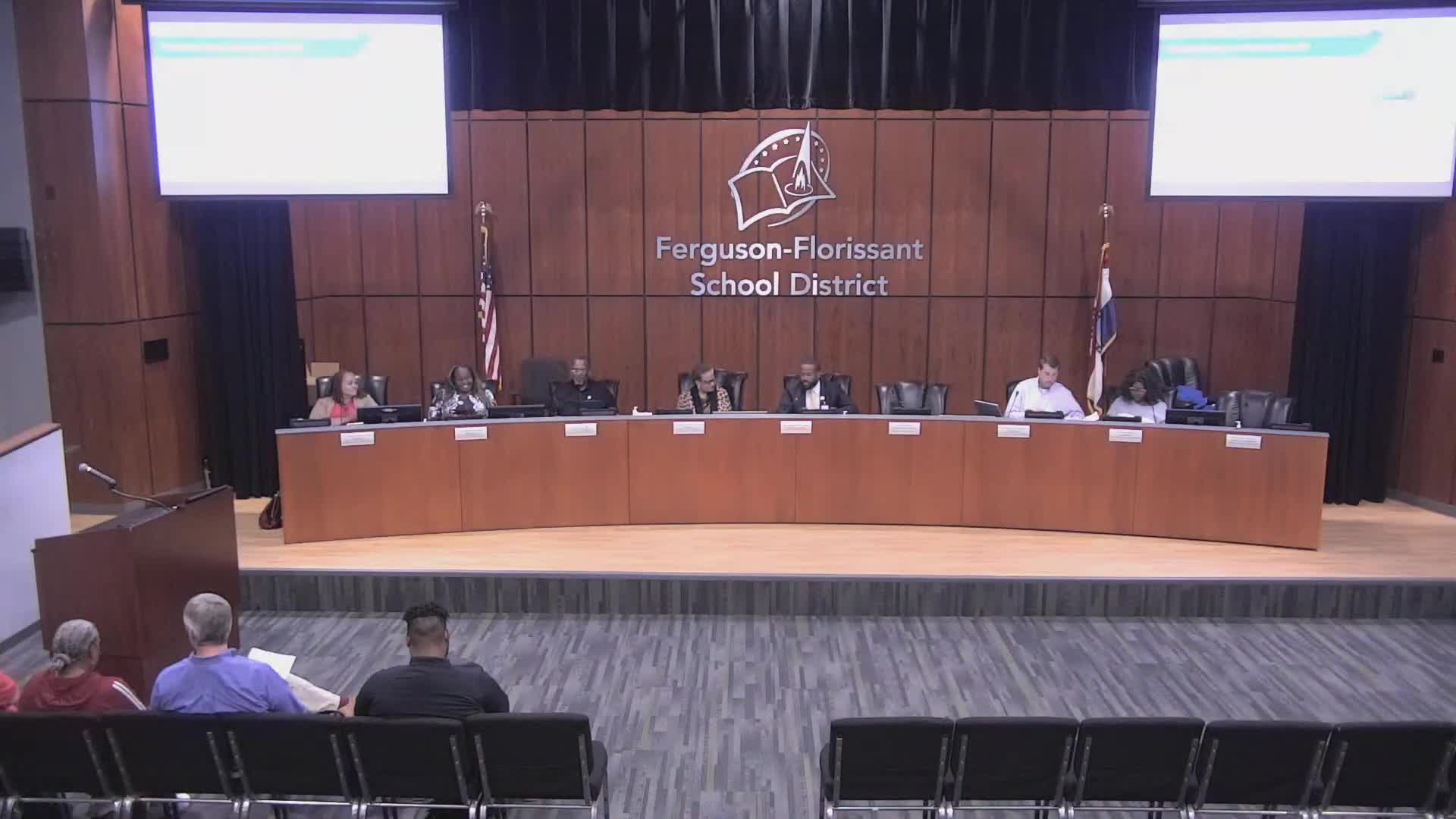Ferguson‑Florissant board reviews sharp rise in disciplinary incidents; skipping class largest category
Get AI-powered insights, summaries, and transcripts
Subscribe
Summary
District staff presented August–September discipline data showing a rise in recorded incidents and suspensions, with skipping class accounting for the largest share of incidents. Board members pressed administrators for building‑level referrals, mental‑health referral counts and clearer reporting in Infinite Campus.
Ferguson‑Florissant School District administrators on Tuesday told the Board of Education that recorded disciplinary incidents through early September are higher than the same point last year and that skipping class is the most common incident type.
The district’s behavior data presentation, delivered by Dr. Carl Eimhoff, included totals pulled from Infinite Campus through Sept. 30 and a breakdown of resolutions ranging from parent notification and restorative actions to in‑school and out‑of‑school suspension. "When you look at in‑school suspensions and out‑of‑school suspensions, you can kinda see what causes them," Eimhoff said in the report. He said the district recorded 1,121 total resolution days for in‑school work and 1,399 for out‑of‑school consequences in the reporting window and estimated that total event counts were higher this year than at the same time last year.
Board members pressed for more detail on what is driving the increase and whether it reflects real changes in student behavior or improved reporting. "Suspension doesn't work," said Board member Dr. Paul Walker, arguing that the district should prioritize referrals to therapy and wraparound supports rather than rely on exclusionary discipline. Eimhoff said care teams are active: "We are running about 38 current care teams of students that were referred," he told the board.
The district supplied a category breakdown that put skipping class at roughly 19 percent of incidents; physical aggression, dress‑code violations and noncompliance were also listed among the top categories. Cell‑phone violations represented about 5 percent of recorded incidents, the presentation said. Administrators explained some of the apparent increases may come from more complete entry of incidents into Infinite Campus this year compared with previous years.
Board members asked for clearer, building‑level comparisons and for counts of referrals to outside providers. Eimhoff and other administrators said the district uses community partners, including KVC and Hazel Health, and that social workers and counselors support referrals. "Those would be shared through the social workers or from the counselors," Eimhoff said when asked about mental‑health referrals.
Directives from the discussion included continued monthly reporting on discipline, follow‑up with building administrators to compare schools that show lower referral rates, and a commitment from the executive leadership to examine patterns tied to schedule changes (for example, fewer periods or more unstructured time). Several board members urged staff to ensure all incidents are entered in Infinite Campus so the board and community can target supports where they are needed.
The board did not adopt new disciplinary policy during the meeting but requested follow‑up materials showing (1) how many students are being referred to outside mental‑health providers, (2) which buildings have active care teams and embedded supports, and (3) building‑level incident and suspension counts so members can compare practices and outcomes.
Administrators said they will provide the requested follow‑up at an upcoming board meeting and continue to develop building improvement plans based on the data.
